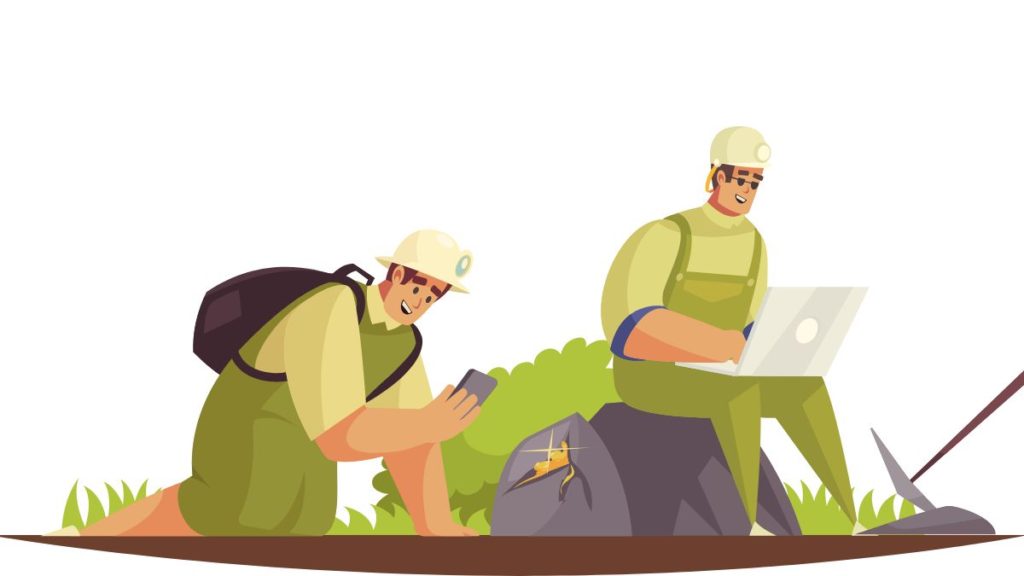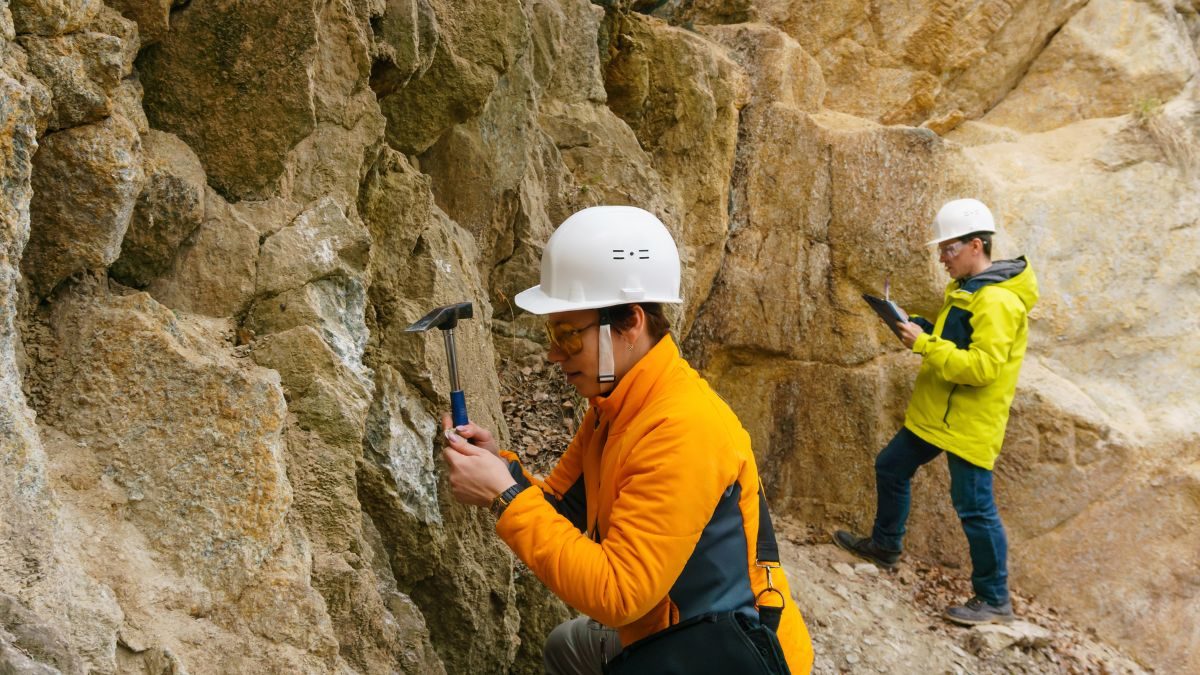What kind of careers are there in geology?
In general, geologists study the Earth to increase their understanding of this planet. They are curious about the history of the Earth, the processes going on within it, and the consequences of those processes, such as earthquakes, volcanoes, and mineral depositions. Through this study, they can also help others by discovering life-improving natural resources, mitigating the effects of natural disasters, and educating people about the planet we call home.

Geologists, like all scientists, often specialize in fields that are of special interest to them. They can become one or a combination of the following:
• Economic geologists explore natural resources and their development.
• Engineering geologists are concerned with geologic factors that affect structures such as buildings, dams, and bridges.
• Environmental geologists solve problems associated with waste disposal, pollution, urban development, and natural hazards such as flooding.
• Geochemists investigate the chemical makeup of rocks and minerals.
• Geochronologists use radioactive dating to determine the age of rocks and reconstruct the geologic evolution of the Earth (and sometimes its organisms).
• Geodynamacists study tectonic plate motions and interactions between the plates.
• Geomorphologists analyze the effects of Earth processes on the origin and nature of landforms.
• Geophysicists interpret data to uncover the planet’s interior, and investigate phenomena such as the Earth’s electric and magnetic fields.
• Glaciologists investigate the movement and properties of ice sheets and glaciers and how the ice affects each other and the land beneath.
• Hydrogeologists deal with all aspects of groundwater, including how water creates karst topography or how groundwater pollution moves in underground realms.
• Marine geologists explore the continental shelves and ocean floors; some use this information to determine the movement of the tectonic plates around the planet.
• Mineralogists discover the composition, properties, and formation of minerals.
• Paleontologists look for and study fossils to uncover ancient animals and plants, determine organisms’ evolution, and understand the environment in which the organisms lived.
• Petroleum geologists explore for oil and natural gas; they are also often involved in the production of petroleum products.
• Planetary geologists (also called planetologists) analyze data from the Moon and other planets and satellites to gain an understanding of our planet’s long geologic history, as well as the formation, impact history, and current morphology of other planetary bodies.
• Sedimentologists deal with sedimentary processes and the resulting rocks.
• Seismologists investigate all aspects of earthquakes; they use earthquake waves to discover the Earth’s interior structure-even using artificial (humanmade) “seismic” waves to better understand structures immediately below the surface, such as faults.
• Stratigraphers study the relationships (both time and spatial) between rocks, minerals, and fossils contained within rock layers.
• Structural geologists explore phenomena that affect the Earth’s crust, such as folding, faulting, and deformation.
• Volcanologists examine volcanoes and volcanic phenomena, including the formation and types of gases emitted; some even attempt to predict possible eruptions.
What is the best way to start a career in geology?
As with most sciences, the best time to start is when you are young, though this does not preclude those who wish to change careers later in life. Take as many science courses as possible in high school, especially “Earth science.” Take any continuing education courses on geology. Make geology your hobby: go to gem and mineral shows; explore local creek beds and road cuts; take vacations that turn into field trips; and read as much as you can about geology and related fields. Also, get some practical experience, which might mean doing lapidary work yourself, taking summer field trips sponsored by your local college or university, or even volunteering at a local natural history or science museum.

The point is to immerse yourself in the field to see if you really like it and what areas of geology fascinate you. It might be volcanoes, earthquakes, minerals, or mountains. In any case, make believe you are a geologist-act like one, make it your lifestyle, and see what happens.
What is the best strategy for obtaining a degree (or two) in geology?
Although many students opt for the geology programs at “big name” colleges and universities, there is only limited space available, competition is keen, and undergraduate classes are typically large. A much better way is to attend an academically strong smaller college that focuses on undergraduates. Many of these do not even have graduate programs, so the focus becomes more on teaching than research.
Find a mentor/advisor who will work with you, and take as many courses dealing directly, or even peripherally, with geology as possible. After you’ve finished your junior year, discuss with your mentor what graduate programs are best for you, taking into consideration the strength of the department, the current research, and the reputations and personalities of the individual professors. Ignore the media hype and rankings of “hot” schools. Shop around and be sure to visit each place on your “short list.”
Perhaps the best place to start shopping for a degree is your local library-just peruse the many “guides to college” books now available. And for additional information, check out college Web sites on the Internet for the most updated information.
What are some nongovernmental U.S. organizations and societies devoted to geology?
The following are some examples of U.S. geology-oriented organizations and societies that are independent of the government:
• American Association of Petroleum Geologists (MPG)
• American Geological Institute (ACT)
• American Geophysical Union (AGU)
• American Institute of Professional Geologists (AIPG)
• Association for Women Geoscientists (AWG)
• Association of American State Geologists (Ao\SG)
• Association of Engineering Geologists (AEG)
• Geological Society of America (GSA)
• Geoscience Information Society (GIS)
• Mineralogical Society of America (MSA)
• Society for Mining, Metallurgy, and Exploration (SME)
• Society of Economic Geologists (SEG)
• Society of Exploration Geophysicists (SEG)
